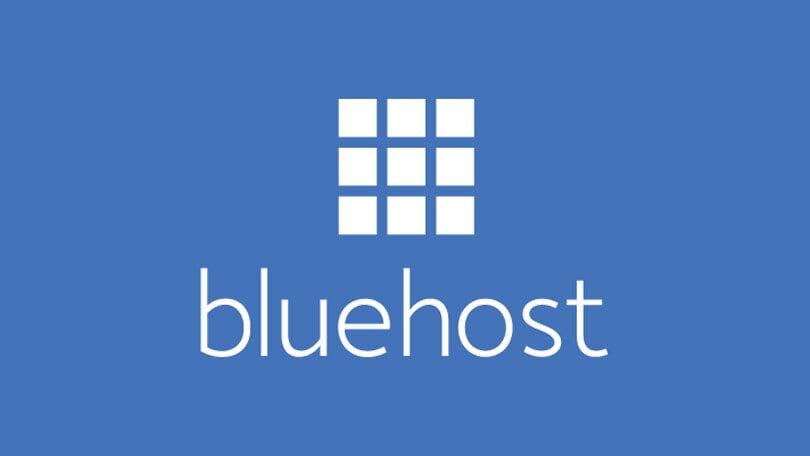
Are you on the hunt for the perfect web hosting provider to launch your website? If so, you’ve probably stumbled upon two heavyweights in the industry: Bluehost and HostGator. Both boast impressive features, stellar uptime, and a customer base that spans the globe. But which one is truly the best fit for your needs? In this article, we’ll dive into the nitty-gritty details of Bluehost and HostGator, comparing their offerings, performance, pricing, and customer support. Whether you’re a blogging newbie or an e-commerce entrepreneur, we’re here to help you make an informed decision that will set you up for online success. So, grab a cup of coffee, and let’s explore the ins and outs of Bluehost vs. HostGator—your ideal web hosting partner is just a few scrolls away!
Understanding the Basics of Bluehost and HostGator
Choosing the right web hosting service can be a daunting task, especially when you’re faced with popular options like Bluehost and HostGator. Both companies have been around for a while and offer a variety of plans tailored to different needs, but they each have unique features and strengths worth exploring.
Bluehost is often recommended for beginners and small to medium-sized businesses. It’s officially endorsed by WordPress.org, which means it’s optimized for WordPress hosting. Here are some of its standout features:
- Free Domain Name: Bluehost offers a free domain for the first year with most hosting plans.
- 24/7 Support: Their customer support is available round the clock via phone, chat, and email.
- Easy Setup: The one-click installation for WordPress makes it incredibly user-friendly for newcomers.
- Performance: Bluehost boasts solid uptime and speed, which is crucial for any website.
On the other hand, HostGator is a versatile option that caters to a wide range of users, from personal blogs to large businesses. It offers robust features that can be particularly appealing for those with more technical expertise. Here’s what HostGator has to offer:
- Flexible Pricing: HostGator provides various pricing plans, making it easier to find one that fits your budget.
- Unmetered Bandwidth: This feature allows you to host large amounts of traffic without additional fees.
- Website Builder: HostGator includes a drag-and-drop builder, making it easy to create websites without coding knowledge.
- Scalability: You can easily upgrade your hosting plan as your site grows.
When it comes to performance, both Bluehost and HostGator deliver commendable uptime and speed. However, it’s important to note the differences in their server locations and optimization techniques. A comparison of their uptime and speed metrics can provide a clearer picture:
| Feature | Bluehost | HostGator |
|---|---|---|
| Uptime | 99.99% | 99.98% |
| Average Load Time | 400 ms | 350 ms |
In terms of pricing, both platforms offer competitive introductory rates, but these can change upon renewal. It’s wise to consider what you’ll be paying in the long run. While Bluehost might offer an appealing starting price, HostGator’s unmetered bandwidth can save you money if your site experiences sudden growth.
Ultimately, your choice between Bluehost and HostGator will depend on your specific needs. If you prioritize ease of use and customer service, Bluehost might be the better fit. Alternatively, if you’re looking for flexibility and scalability, HostGator could be the key to accommodating your evolving website.
Exploring Performance and Speed: Which One Reigns Supreme?
When it comes to web hosting, speed and performance can make or break your online presence. Bluehost and HostGator are two heavyweights in this arena, each boasting unique features that cater to different user needs. Let’s dig into how they stack up against each other.
Performance Metrics
Both Bluehost and HostGator promise high uptime and fast loading speeds, which are crucial for user retention and SEO. However, the reality often varies based on specific configurations and server locations. Here’s a quick comparison of their performance metrics:
| Provider | Uptime | Average Load Time |
|---|---|---|
| Bluehost | 99.98% | 2.6 seconds |
| HostGator | 99.99% | 2.8 seconds |
As you can see, both providers offer excellent uptime, but HostGator takes a slight edge in overall reliability. However, Bluehost still delivers solid performance, especially for WordPress users, due to its optimized environment.
Speed Optimization Features
Speed is not merely a function of uptime; it also relies heavily on the technology used by the host. Bluehost integrates various speed optimization features, such as:
- Content Delivery Network (CDN): Their integrated CDN helps deliver content faster by caching it on servers close to your visitors.
- SSD Storage: Solid State Drives provide quicker data access than traditional hard drives.
- Free Cloudflare Integration: This provides additional caching and security benefits.
On the other hand, HostGator employs comparable speed enhancement technologies, such as:
- Gator Website Builder: This intuitive tool helps create optimized sites without technical expertise.
- Optimized WordPress Hosting: Tailored specifically for WordPress, ensuring quick installation and performance.
- Unmetered Bandwidth: This allows for flexible resource usage, crucial for traffic spikes.
User Experience and Support
In addition to raw performance metrics, user experience plays a significant role in determining which host provides a superior service. Bluehost offers 24/7 customer support through various channels, ensuring any speed-related issues can be swiftly addressed. They are known for their knowledgeable support staff who can help troubleshoot performance problems.
HostGator also provides round-the-clock support but shines with a more extensive knowledge base filled with tutorials and articles that can help users optimize their website’s speed and performance independently. This can be particularly valuable for tech-savvy users who prefer self-service solutions.
Conclusion
Choosing between Bluehost and HostGator ultimately comes down to your individual needs. If you prioritize speed and performance for a WordPress site, Bluehost may have the edge. However, for users who value stability and extensive support resources, HostGator can be a formidable competitor. Each has its strengths, meaning the best choice will depend on your specific requirements and preferences in the fast-paced world of web hosting.
Assessing Customer Support: Quick Response or Long Waits?
When it comes to choosing between Bluehost and HostGator, one crucial factor that often sways decision-making is customer support. In today’s fast-paced digital world, how quickly a hosting provider responds to inquiries can make all the difference. Let’s break down the support systems of both companies to see who comes out on top.
Response Time
Both Bluehost and HostGator offer 24/7 customer support, but there are notable differences in their response times:
| Support Channel | Bluehost Response Time | HostGator Response Time |
|---|---|---|
| Live Chat | Less than 1 minute | 1-2 minutes |
| Phone Support | 1-3 minutes | 2-5 minutes |
| Email Support | 1 hour | 2-3 hours |
As you can see, Bluehost tends to have a slight edge in terms of speed, especially with live chat and phone support. Fast response times not only reduce frustration but also ensure that any potential issues can be addressed swiftly, minimizing downtime for your website.
Support Quality
However, speed isn’t everything. The quality of support is paramount. Bluehost has garnered praise for its knowledgeable staff who can tackle both technical questions and account-related issues. Many users report feeling satisfied with the thoroughness of the help provided.
On the other hand, while HostGator also employs well-trained staff, user feedback suggests that responses can sometimes be less comprehensive. Some customers have noted that while their queries are addressed quickly, the depth of support may not always meet their expectations.
Available Resources
Both companies provide a wealth of resources for self-help:
- Knowledge Base: Extensive articles and tutorials on common issues.
- Community Forums: Platforms for users to share solutions.
- Video Tutorials: Visual guides for setup and troubleshooting.
Having access to these resources allows users to troubleshoot issues independently, which can save time and eliminate the need for direct support.
Conclusion
Both Bluehost and HostGator offer reliable customer support, but if you value quick responses and quality interactions, Bluehost may be the better choice. However, if you prefer to explore self-help options first, both platforms provide ample resources to assist you on your hosting journey.

Diving into Pricing Plans: Where Do You Get More Bang for Your Buck?
Pricing Plans Comparison: Bluehost vs. HostGator
When it comes to selecting a web hosting provider, understanding the pricing plans is crucial for getting the most value for your investment. Both Bluehost and HostGator offer a variety of options, but they do have distinct features that can impact your decision. Let’s break down what each has to offer and where you might find the best deal.
Bluehost Pricing Overview
Bluehost’s pricing can be quite appealing, especially for newcomers to the web hosting scene. Here’s a quick look at their main shared hosting plans:
| Plan | Price per Month | Features |
|---|---|---|
| Basic | $2.95 |
|
| Plus | $5.45 |
|
| Choice Plus | $5.45 |
|
As you can see, Bluehost offers an attractive starting price, especially for individuals just dipping their toes into the hosting world. The inclusion of a free domain for the first year and SSD storage adds significant value right off the bat.
HostGator Pricing Overview
On the other hand, HostGator is known for its flexibility and scalability. Their pricing structure is competitive, featuring plans that cater to both beginners and experienced users alike. Here’s a snapshot of their shared hosting offerings:
| Plan | Price per Month | Features |
|---|---|---|
| Hatchling | $2.75 |
|
| Baby | $3.50 |
|
| Business | $5.25 |
|
HostGator’s plans are similarly appealing, particularly with features like unmetered bandwidth and a free SSL certificate, which are essential for any online business. The ability to easily scale your plan as your needs grow is a significant advantage for those anticipating rapid growth.
Which Offers Better Value?
Determining which provider offers the best “bang for your buck” ultimately comes down to your specific needs:
- If you’re a beginner: Bluehost’s low starting cost and included domain registration might be the way to go.
- If you require flexibility: HostGator’s unmetered bandwidth and easy upgrade options can provide more room for growth.
- If security is a priority: Both services offer SSL certificates, but HostGator includes it even on their lowest tier.
it’s essential to evaluate your needs and consider the long-term benefits of each plan. Both Bluehost and HostGator offer competitive pricing, but the best choice will depend on what features matter most to you. Take your time, compare what’s included, and find the plan that truly fits your budget and goals.
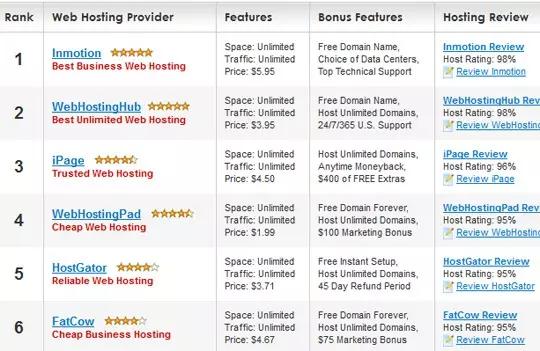
Examining Features: What Each Hosting Provider Offers
When gearing up to select a hosting provider, the features offered can significantly influence your decision. Both Bluehost and HostGator have established themselves as top contenders in the hosting world, but they cater to different needs and preferences. Let’s delve into the specifics of what each provider brings to the table.
Performance and Speed
Performance is paramount when it comes to web hosting. If your website is sluggish, users will likely bounce away. Here’s how these two stack up:
- Bluehost: Known for its robust speed and uptime, Bluehost guarantees a 99.9% uptime rate, making it a reliable choice for businesses aiming for consistent online presence.
- HostGator: While also offering a solid uptime guarantee, HostGator excels in scalability, allowing websites to handle sudden traffic spikes without breaking a sweat.
User-Friendly Interface
Both platforms aim to make the user experience as seamless as possible, especially for beginners:
- Bluehost: Offers an intuitive dashboard that integrates well with WordPress, making setup and management a breeze for new users.
- HostGator: Features a user-friendly cPanel that’s customizable, allowing users to tailor their hosting experience according to their specific needs.
Customer Support
Having reliable customer support can save you headaches down the line. Both providers understand the importance of being there for their users:
- Bluehost: Provides 24/7 support via chat, phone, and email, along with an extensive knowledge base to help troubleshoot common issues.
- HostGator: Also available 24/7, HostGator is praised for its live chat support, which often delivers quick and effective solutions to problems.
Pricing and Plans
Pricing structures can be complex, but understanding them is key to making a financially sound choice:
| Feature | Bluehost | HostGator |
|---|---|---|
| Starting Price | $2.95/month | $2.75/month |
| Free Domain for 1st Year | ✔️ | ✔️ |
| Money-Back Guarantee | 30 Days | 45 Days |
While Bluehost and HostGator both offer competitive starting prices, HostGator slightly edges out with a longer money-back guarantee, providing a bit more security for those unsure about their decision.
Additional Features
It’s the extra features that can set a host apart:
- Bluehost: Comes with free SSL certificates and offers a variety of marketing credits, making it ideal for small businesses looking to grow.
- HostGator: Offers a free website builder and a rich library of templates, great for users who want a quick start without diving deep into web design.
Conclusion
Both Bluehost and HostGator have compelling offerings, catering to different types of users. Whether you prioritize speed, customer service, or additional features, understanding these distinctions will help you make an informed decision tailored to your specific needs.

User Experience: A Closer Look at Interface and Usability
When it comes to web hosting, the interface and usability of a provider can make or break your experience. Both Bluehost and HostGator have crafted their platforms to cater to users of varying skill levels, but the way they approach user experience differs significantly. Let’s dive into the specifics!
Bluehost stands out with its clean, intuitive dashboard that appeals to beginners and seasoned developers alike. The layout is straightforward, allowing users to navigate through their accounts without feeling overwhelmed. The home page displays essential stats at a glance, such as website traffic and resource usage. This user-friendly interface is complemented by:
- One-click installations for popular content management systems like WordPress.
- Guided tutorials and help documentation easily accessible from the dashboard.
- Customizable themes that can be implemented with minimal effort, making it easier to create a professional-looking site.
On the other hand, HostGator offers a different flavor of usability. While their interface isn’t as polished as Bluehost’s, it still provides a robust experience. The cPanel used by HostGator is familiar to many, making it a comfortable choice for users who have prior hosting experience. Some notable features include:
- Flexible site builder tools that empower users to design their web pages from scratch.
- Extensive app library that allows for easy integration of additional functionalities.
- Quick access to customer support, which is crucial when troubleshooting.
To help you visualize the differences in user experience, here’s a quick comparison of their key features:
| Feature | Bluehost | HostGator |
|---|---|---|
| Interface Design | Intuitive and beginner-friendly | Traditional cPanel interface |
| One-Click Installations | Yes | Yes |
| Site Builder | Basic with templates | Robust with customization options |
| Support Documentation | Accessible and comprehensive | Detailed support articles available |
In terms of usability, Bluehost shines for those who may feel daunted by complex setups, while HostGator appeals to more experienced users looking for flexibility. Additionally, both providers offer support channels, but the responsiveness can vary. Bluehost typically enjoys higher marks for customer service efficiency compared to HostGator, which can be a deciding factor for users needing reliable assistance.
Ultimately, your choice may depend on your specific needs and expertise. If you prefer a straightforward, visually appealing interface, Bluehost may have the upper hand. However, if you’re looking for a deeper level of customization and are comfortable navigating a more traditional setup, HostGator could be your best bet. Understanding these differences will lead to a more satisfying web hosting experience, so weigh your options carefully before making your decision!
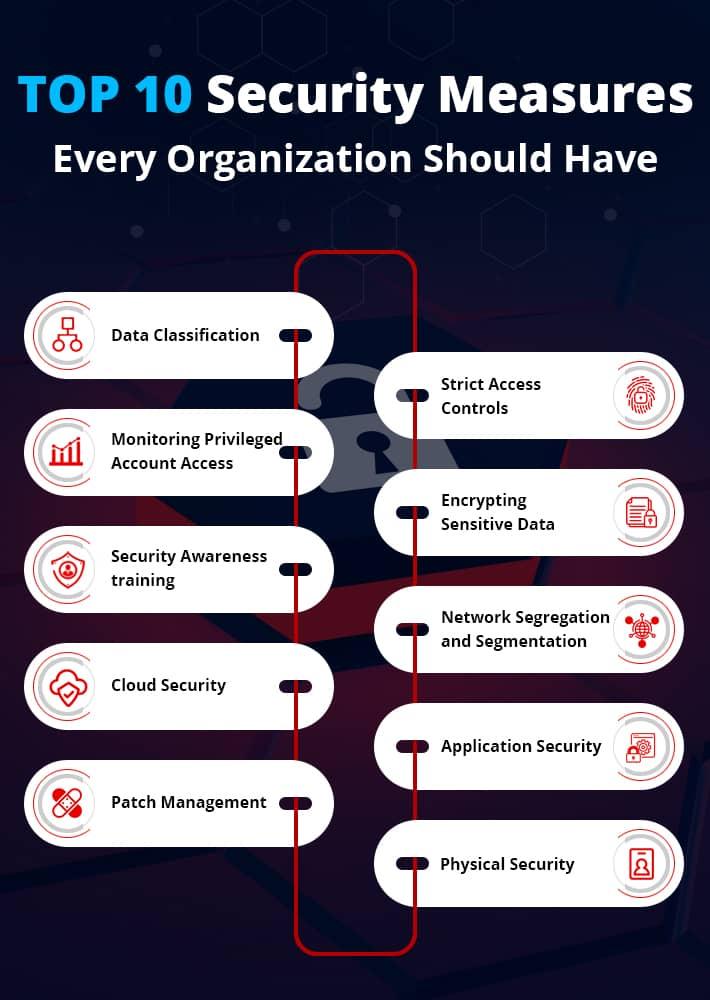
Security Measures: How They Protect Your Website
When it comes to choosing a web hosting provider, security should be at the forefront of your decision-making process. Both Bluehost and HostGator understand the importance of keeping your website safe and secure. Let’s dive into the specific measures each provider implements to protect your online presence.
Bluehost offers a variety of security features designed to safeguard your website from potential threats. Here are some key aspects:
- Free SSL Certificate: This encrypts data transferred between your website and its visitors, providing an essential layer of security.
- SiteLock Security: With Bluehost, you can opt for SiteLock, which continuously scans your website for vulnerabilities and malware, ensuring that any threats are dealt with swiftly.
- DDoS Protection: Distributed Denial of Service (DDoS) attacks can cripple websites, but Bluehost has measures in place to mitigate these risks, ensuring your site remains accessible.
On the other hand, HostGator is also committed to providing robust security. Here’s how they keep your website secure:
- Automatic Backups: HostGator offers automatic backups so your data is safe, and you can restore your website easily in case of any mishap.
- SSH Secure Access: With Secure Shell (SSH), you can securely access your web server and manage your files without exposing sensitive information.
- Firewall Protection: HostGator uses advanced firewall technology to monitor and filter incoming traffic, keeping malicious users at bay.
When comparing the two, it’s essential to consider not just the features but how they integrate into your overall website management. Here’s a quick comparison:
| Feature | Bluehost | HostGator |
|---|---|---|
| Free SSL | ✔️ | ✔️ |
| SiteLock | ✔️ | No |
| Automatic Backups | No | ✔️ |
| DDoS Protection | ✔️ | ✔️ |
Both providers offer significant security measures that are essential for maintaining the integrity of your website. Ultimately, the choice you make should align with your specific needs and the type of content you’ll be hosting. Whether you prioritize proactive malware protection with Bluehost or reliable backup solutions with HostGator, understanding these security measures will empower you to make a more informed decision.

Scalability: Which Host Can Grow with Your Business?
When it comes to choosing a web host for your growing business, scalability is a key factor to consider. Both Bluehost and HostGator offer a range of plans that can cater to different stages of your business journey. However, each has its unique advantages that might align better with your specific needs.
Bluehost: A Reliable Partner for Growth
Bluehost is known for its robust infrastructure and user-friendly interface. Here’s why it stands out:
- Flexible Plans: As your business grows, you can easily upgrade your hosting plan without any hassle. Bluehost provides various options, from shared hosting to dedicated servers.
- Resource Management: With the option to add more resources like CPU and RAM, you can enhance your site’s performance as traffic increases.
- Seamless Integration: Bluehost integrates well with various content management systems, allowing you to scale your website effectively.
HostGator: Growing with You
HostGator, on the other hand, is also a strong contender for businesses looking for scalable solutions:
- Unmetered Bandwidth: HostGator offers unmetered bandwidth on most plans, allowing you to handle spikes in traffic without additional costs.
- Easy Upgrades: As your site expands, you can seamlessly upgrade your plan with just a few clicks, with options that include VPS and dedicated hosting.
- Custom Solutions: For businesses with unique needs, HostGator offers custom hosting solutions tailored to your requirements.
Feature Comparison Table
| Feature | Bluehost | HostGator |
|---|---|---|
| Plan Flexibility | High | Medium |
| Resource Management | Excellent | Good |
| Bandwidth | Limited (based on plan) | Unmetered |
| Custom Solutions | Yes | Yes |
Ultimately, the right choice depends on your business’s specific requirements. If you anticipate rapid growth and need a host that can accommodate increasing demands, both Bluehost and HostGator offer viable solutions with their own unique strengths. It’s essential to evaluate your current needs and future goals to determine which host will support your vision as you scale.
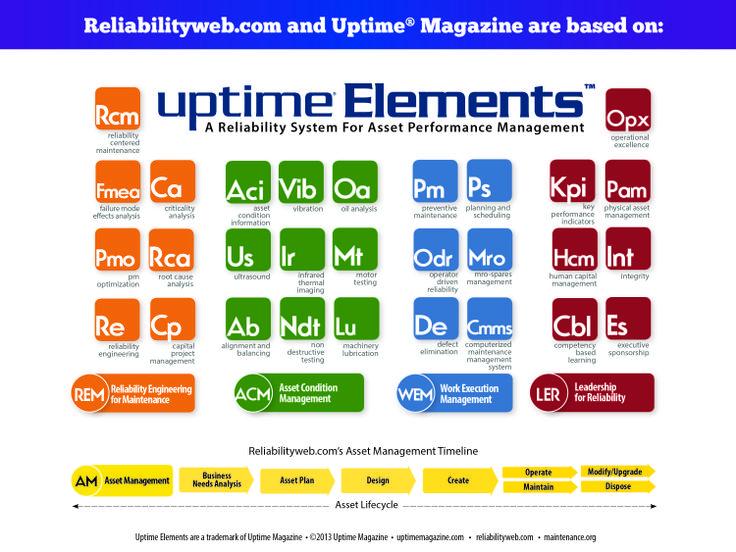
Evaluating Uptime Reliability: Keeping Your Site Live and Running
When it comes to choosing a web hosting provider, uptime reliability is a key factor that can make or break your online presence. Two popular options, Bluehost and HostGator, often find themselves compared side by side, but how do they stack up in terms of keeping your site live and running smoothly?
Bluehost has built a solid reputation for its impressive uptime statistics. Typically boasting an uptime of around 99.9%, it ensures that your website remains accessible to visitors almost all the time. This reliability is crucial for businesses that rely on online traffic for revenue, as even an hour of downtime can lead to a significant loss of potential income.
On the other hand, HostGator also offers competitive uptime, often matching Bluehost with a similar 99.9% uptime guarantee. However, users have reported occasional fluctuations, particularly during peak traffic periods. While HostGator provides affordable plans and excellent features, the reliability of their uptime may not be as consistently strong as Bluehost’s.
To truly understand the performance of these two hosts, consider the following factors:
- Server Location: The geographical location of servers can impact loading speeds and uptime. Bluehost has multiple data centers, which helps distribute traffic efficiently.
- Support Services: Having responsive customer support can make a difference when issues arise. Bluehost offers 24/7 support, ensuring you can address any downtime quickly.
- Monitoring Tools: Both hosts provide monitoring tools, but Bluehost’s dashboard often receives praise for its user-friendly interface and real-time stats.
| Feature | Bluehost | HostGator |
|---|---|---|
| Uptime Guarantee | 99.9% | 99.9% |
| Support Availability | 24/7 | 24/7 |
| Free SSL Certificate | Yes | Yes |
| Website Backup | Daily | Weekly |
Ultimately, the choice between these two hosting options comes down to your specific needs. If uptime and customer service are your top priorities, Bluehost may be the better choice. However, if you’re looking for a cost-effective solution with decent reliability, HostGator remains a strong contender.
investing in a hosting provider with proven uptime reliability is essential for maintaining your website’s reputation and performance. Evaluate your options carefully, and choose a host that aligns with your goals for keeping your site live and thriving.

Additional Tools and Resources: What Extras Do They Provide?
When it comes to choosing a hosting provider, the additional tools and resources they offer can make or break your experience. Both Bluehost and HostGator provide a variety of extras designed to enhance your website management, improve performance, and streamline your online presence.
Bluehost excels in offering a user-friendly experience, particularly for beginners. Some standout tools they provide include:
- Free Domain Name for the first year, helping you establish your brand without extra costs.
- Website Builder that’s easy to use, allowing you to create stunning websites with no coding skills required.
- Enhanced Security Features, like SSL certificates included in all plans, ensuring your site is safe and trustworthy.
- Marketing Credits for Google Ads and Bing Ads that help kickstart your online marketing efforts.
On the other hand, HostGator brings its own unique set of tools to the table, appealing to users looking for flexibility and scalability. Here are some of the highlights:
- Website Builder with drag-and-drop functionality, perfect for those who want to create their site quickly.
- $100 Google Ads Credit to help promote your site effectively.
- E-commerce Tools that support online stores, including shopping cart integration and payment processing options.
- Free Website Migration services, which can save you time and hassle when moving from another provider.
Moreover, both providers equip you with essential resources that can elevate your website’s success. Let’s take a look at a quick comparison:
| Feature | Bluehost | HostGator |
|---|---|---|
| Domain Registration | Free for 1 year | $15.00/year |
| SSL Certificate | Free | Free |
| Website Builder | Included | Included |
| Marketing Credits | Up to $200 | $100 |
Both Bluehost and HostGator also provide comprehensive knowledge bases, tutorials, and 24/7 customer support, ensuring you’re never left in the dark when issues arise. This availability of resources can significantly enhance your learning curve and help you get the most out of your hosting service.
Ultimately, whether you lean towards Bluehost or HostGator may boil down to what additional tools and resources resonate more with your specific needs. The right extras can give you that competitive edge, supporting everything from marketing your website to optimizing performance and ensuring security.

User Reviews and Feedback: What Are Real Customers Saying?
When it comes to choosing between Bluehost and HostGator, hearing from actual users can provide valuable insights. Many customers have shared their experiences, shedding light on both the strengths and weaknesses of these popular hosting services.
Bluehost has garnered a loyal following, with many users praising its customer support. One user shared, “Whenever I have a problem, I can count on their support team to help me out quickly. It feels reassuring knowing there’s always someone available.” This sentiment is echoed by numerous reviews highlighting the 24/7 live chat and phone support that Bluehost offers.
On the other hand, HostGator users often rave about the affordability of their plans. A customer stated, “I switched to HostGator because of their pricing. I got more features for less money compared to what I was paying elsewhere!” This competitive pricing is frequently mentioned in reviews, making HostGator a popular choice for budget-conscious individuals and small businesses.
However, it’s not all rosy for either hosting provider. Some Bluehost users have reported uptime issues during peak times, saying, “I experienced slow loading times when my site traffic increased. I expected better performance given their reputation.” Such feedback indicates that while Bluehost excels in many areas, it may not be the best fit for high-traffic sites.
Conversely, HostGator has faced criticism regarding site migrations. One user lamented, “I found the migration process tedious. It took longer than I anticipated, and I had to reach out multiple times for assistance.” This highlights a potential hurdle for those looking to switch from another host without a hitch.
To give you a clearer picture, here’s a summary of key feedback points from users of both services:
| Feature | Bluehost Feedback | HostGator Feedback |
|---|---|---|
| Customer Support | Responsive and helpful | Mixed reviews, some delays |
| Pricing | Considered slightly higher | Very competitive |
| Uptime | Good but can lag at peak times | Generally reliable |
| Ease of Migration | Smooth and straightforward | Can be complicated |
both Bluehost and HostGator have their fair share of supporters and critics. While Bluehost is often praised for its robust support, HostGator shines with its competitive pricing. It’s clear that the best choice will depend on the specific needs and priorities of the customer, whether that’s affordability, support, or performance.

Making the Final Decision: Which Host is Right for You?
When weighing your options between Bluehost and HostGator, it’s crucial to consider several factors that can influence your website’s performance and overall success. Both hosting providers have their unique strengths and cater to different types of users, so understanding your specific needs will help you make the right decision.
Performance and Reliability
Website speed and uptime are essential for user experience and SEO. Both Bluehost and HostGator boast impressive uptime records, but they differ slightly in speed optimization. Here’s a quick comparison:
| Feature | Bluehost | HostGator |
|---|---|---|
| Average Load Speed | 2.5 seconds | 2.8 seconds |
| Uptime Guarantee | 99.9% | 99.9% |
If speed is your top priority, Bluehost has the edge, but HostGator also delivers consistent performance. Think about your target audience and where they are located to decide which hosting service will provide the best experience.
Customer Support
Having reliable customer support is vital, especially if you’re new to website management. Both hosts offer 24/7 support, but their approach varies:
- Bluehost: Known for its friendly and knowledgeable support team, they offer live chat, phone support, and an extensive knowledge base.
- HostGator: Offers similar support options, but some users report slower response times during peak hours.
Ultimately, if you value quick resolutions and personalized assistance, you might find Bluehost more appealing.
Pricing and Value
Cost is a significant factor when selecting a hosting provider. Bluehost tends to offer introductory prices that are more competitive, but be wary of renewal rates:
- Bluehost: Starts as low as $2.95/month for the first term, but renewals can jump to around $8.99/month.
- HostGator: Also begins at $2.75/month, with renewal pricing similar to Bluehost.
Consider what additional features (like free domain registration or SSL certificates) each provider includes in their plans, as these can significantly influence overall value.
User Interface and Experience
The ease of use of the hosting interface can greatly affect your experience. Bluehost features a simplified control panel that is beginner-friendly, while HostGator’s interface is more traditional:
- Bluehost: Offers a streamlined dashboard that simplifies tasks like installing WordPress and managing domains.
- HostGator: Provides a more feature-rich interface, which may be more appealing to experienced users but can be overwhelming for beginners.
If you’re just starting out, Bluehost’s user-friendly approach might be more beneficial.
the right choice between Bluehost and HostGator hinges on your specific needs, be it speed, support, cost, or usability. Take the time to assess what you value most in a hosting provider, and don’t hesitate to utilize free trials or money-back guarantees to test the waters before committing. Ultimately, your website deserves a hosting partner that aligns with your goals.
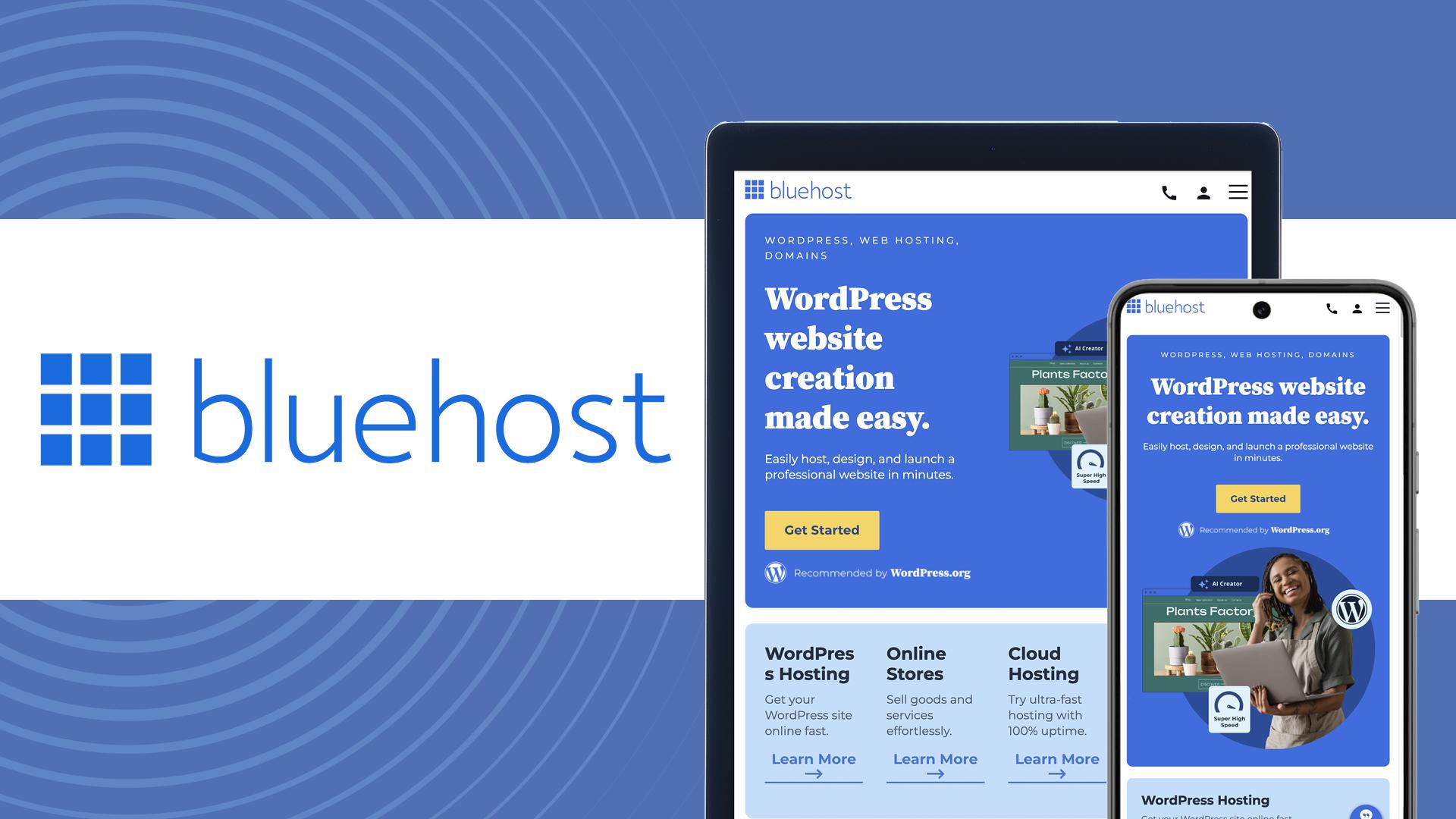
Final Thoughts: Summarizing the Pros and Cons of Bluehost and HostGator
When weighing the pros and cons of Bluehost and HostGator, it’s essential to consider what aspects matter most for your specific needs. Both hosting providers have their unique strengths and weaknesses that can significantly impact your web hosting experience.
Bluehost: The Pros
- User-Friendly Interface: Bluehost offers an intuitive control panel, making it easy for beginners to navigate through their hosting options.
- Excellent Customer Support: They provide 24/7 support through various channels, including live chat and phone, ensuring help is always available.
- Performance & Uptime: With a solid uptime record and fast loading times, Bluehost is ideal for businesses that prioritize reliability.
- Free Domain for the First Year: New customers can benefit from a free domain registration, adding extra value to their hosting plan.
Bluehost: The Cons
- Higher Renewal Rates: While initial pricing can be attractive, renewal rates tend to increase significantly after the first term.
- Limited Storage on Basic Plans: Basic plans offer limited storage, which might not suffice for larger websites or eCommerce stores.
HostGator: The Pros
- Flexible Hosting Plans: HostGator offers a variety of plans, catering to both small blogs and large businesses, giving you plenty of options.
- Unmetered Bandwidth: They provide unmetered bandwidth, allowing your site to handle traffic spikes without additional costs.
- Great Money-Back Guarantee: Their 45-day money-back guarantee gives you ample time to test their services without risk.
- Website Builder Tools: HostGator includes an easy-to-use website builder, perfect for those who want to create a site quickly.
HostGator: The Cons
- Averaged Customer Support: While they do offer support, response times can be slower compared to Bluehost, which can be frustrating in urgent situations.
- Less Optimized for WordPress: Although they support WordPress, their optimizations aren’t as robust as Bluehost’s, which could affect performance.
| Feature | Bluehost | HostGator |
|---|---|---|
| Customer Support | Excellent | Average |
| Storage | Limited on Basic Plan | Unmetered |
| Domain Registration | Free for 1 Year | None |
| Uptime | 99.9%+ | 99.9%+ |
Ultimately, the choice between Bluehost and HostGator boils down to your specific requirements and priorities. If you’re seeking a platform with a strong focus on customer support and high-performance capabilities, Bluehost may be the right fit. Conversely, if you prefer flexible plans with unmetered bandwidth and a broader range of services, HostGator could be more suitable.
Whichever option you choose, both Bluehost and HostGator offer competitive features that can cater to diverse hosting needs. It’s advisable to assess your website goals and select the service that best aligns with them.
Frequently Asked Questions (FAQ)
Q: What are Bluehost and HostGator?
A: Great question! Bluehost and HostGator are two of the most popular web hosting companies out there. They offer a variety of hosting services, including shared hosting, VPS (Virtual Private Server), and dedicated hosting. Both are well-regarded for their reliability and customer service, which makes them excellent choices for anyone looking to establish a website.
Q: Which one is better for beginners?
A: If you’re just starting out and looking for user-friendliness, Bluehost often takes the lead. It’s officially recommended by WordPress, which adds a significant advantage if you’re planning to use that platform. Their interface is intuitive, making it easy to set up your site without getting lost in the technical jargon. HostGator is also beginner-friendly, but many users find Bluehost’s setup process a bit simpler.
Q: How do their pricing structures compare?
A: Both Bluehost and HostGator are competitive in terms of pricing, but there are some nuances. Bluehost often offers promotional pricing, making it quite affordable for the first term. However, their renewal rates can be higher than HostGator’s. On the flip side, HostGator has a more straightforward pricing model, with consistent renewal rates that are still reasonable. If you’re looking for budget-friendly options, it might be wise to read the fine print on both.
Q: What about performance and uptime?
A: Performance is vital for any website, and both Bluehost and HostGator perform admirably in this department. However, Bluehost boasts a slightly better uptime track record, consistently hovering around 99.9%. Meanwhile, HostGator is close behind, offering a solid uptime that many users find reliable. If your website’s performance is crucial for your business, Bluehost might have the edge here.
Q: How is the customer support for both providers?
A: When it comes to customer support, both Bluehost and HostGator shine, but they do have their differences. Bluehost offers 24/7 support via live chat and phone, and they’re known for having helpful and knowledgeable representatives. HostGator also provides round-the-clock support, but some users have reported variable experiences. If support is a top priority for you, Bluehost might give you a little extra peace of mind.
Q: What about features and scalability?
A: Both Bluehost and HostGator offer a range of features, but it really depends on what you need. Bluehost includes a free domain for the first year, SSL certificate, and one-click WordPress installs, which are fantastic for beginners. HostGator, on the other hand, offers unmetered bandwidth and storage, which can be a plus if you anticipate rapid growth. If you plan to scale your website quickly, HostGator might just offer the flexibility you need.
Q: Can I easily migrate my website from one host to another?
A: Absolutely! Both Bluehost and HostGator offer migration services, but the ease of migration can vary. Bluehost offers free migration assistance for WordPress sites, which is a big plus. HostGator also provides migration services, but you might have to pay a fee for non-WordPress sites. If you’re considering switching hosts, check out their migration policies to avoid any surprises!
Q: which one should I choose?
A: Ultimately, the choice between Bluehost and HostGator comes down to your specific needs. If you’re looking for an easy start with excellent customer support and reliable performance, Bluehost might be your best bet. However, if you want more flexibility and potentially better long-term pricing, HostGator is a solid option. Do a bit of soul-searching about your website’s goals, and you’ll find the right fit in no time!
Final Thoughts
As we wrap up our deep dive into the Bluehost vs. HostGator showdown, it’s clear that both of these hosting providers have a lot to offer. Whether you’re just starting your online journey or looking to switch to a more reliable service, each platform has its strengths.
Bluehost excels with its user-friendly interface and exceptional customer support, making it a fantastic choice for beginners. On the other hand, HostGator shines with its flexible plans and robust scalability, perfect for growing websites.
Ultimately, the right choice boils down to your unique needs and priorities. If you value simplicity and stellar support, Bluehost might be your best bet. But if you’re after versatility and budget-friendly options, HostGator could be the way to go.
Remember, the best hosting provider is the one that aligns with your goals. Take your time, weigh your options, and don’t hesitate to explore trial periods or money-back guarantees. Your website deserves a solid foundation, and with either Bluehost or HostGator, you’re in good hands. Happy hosting!






